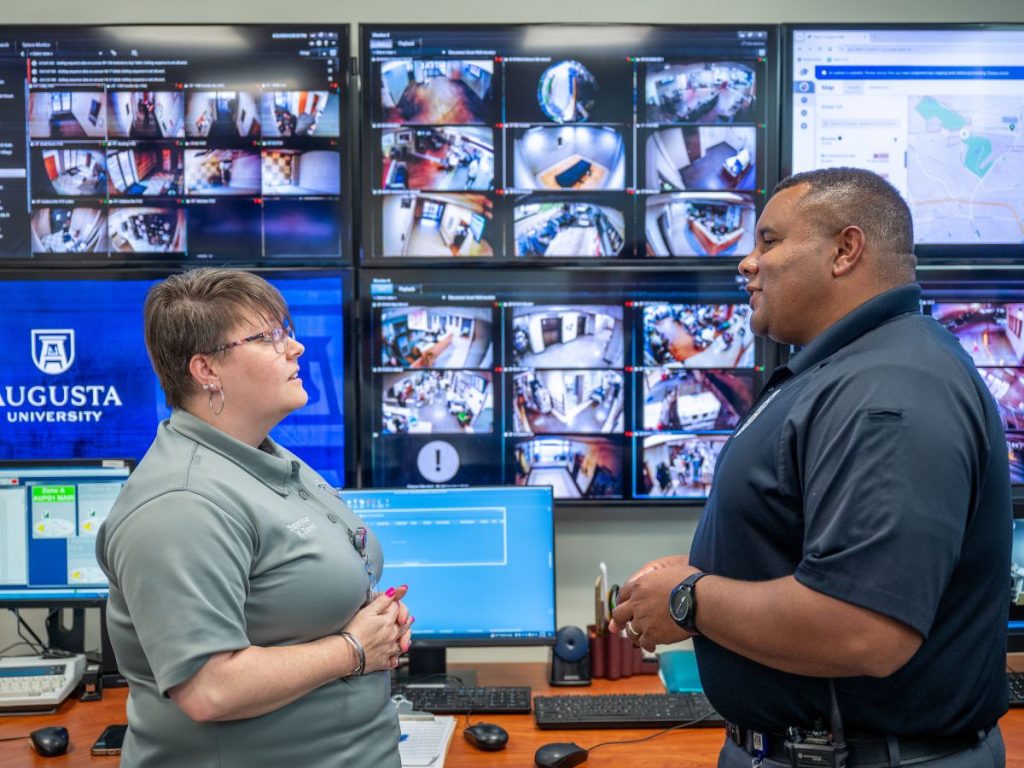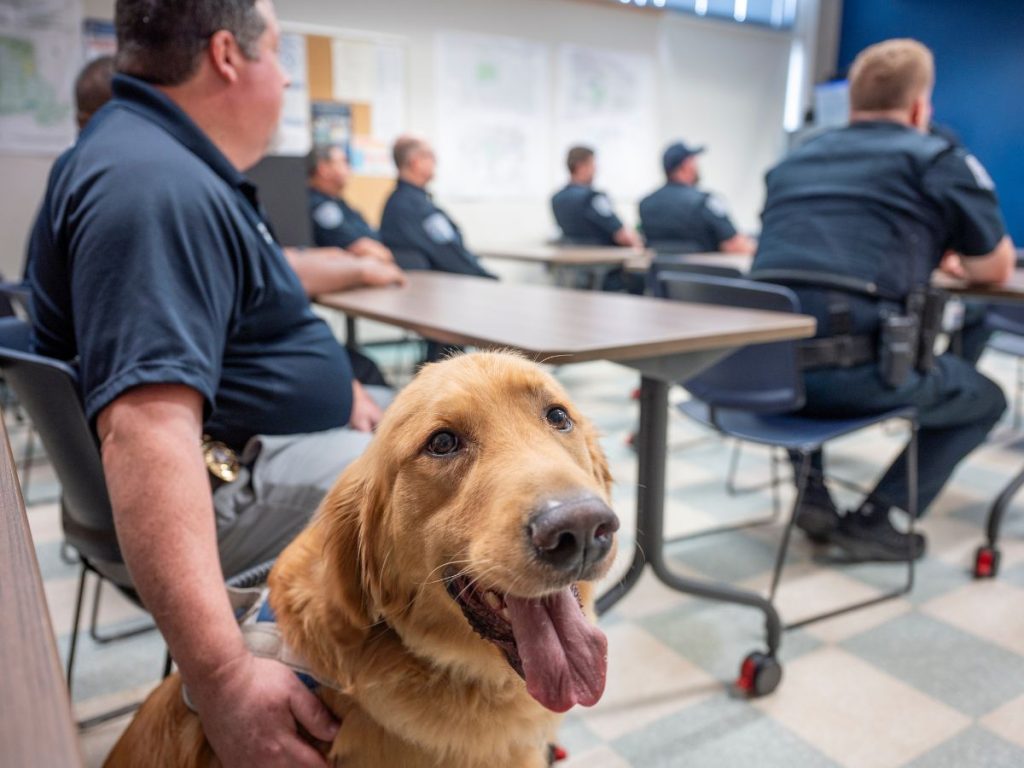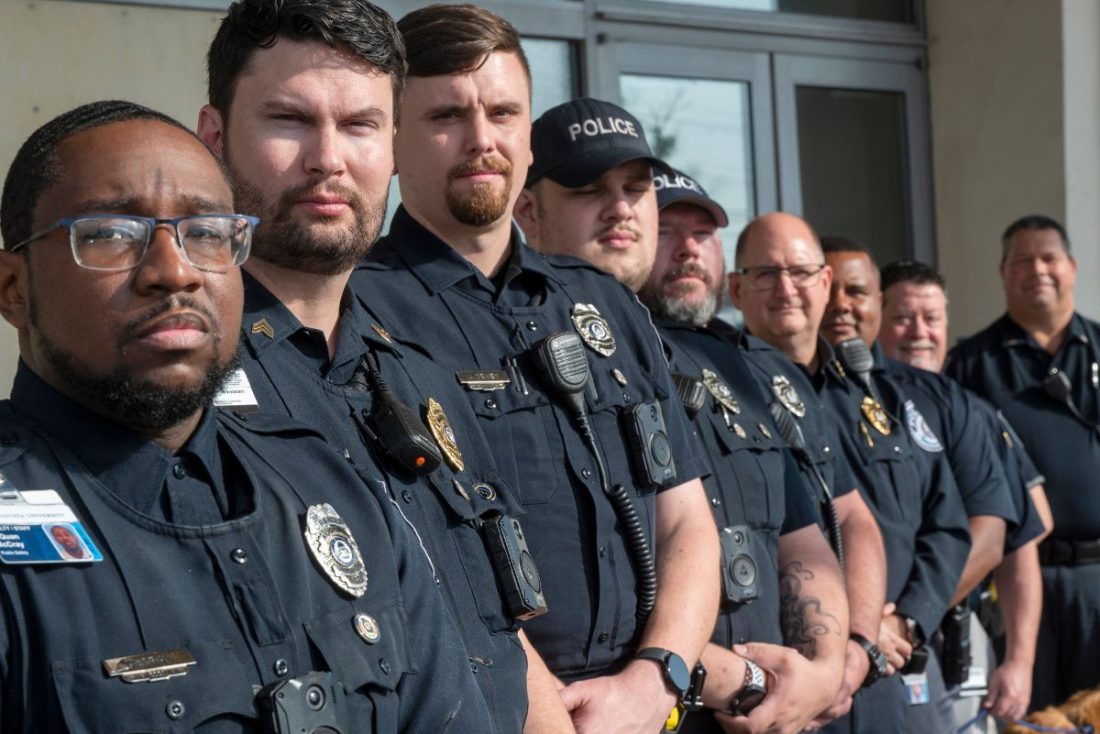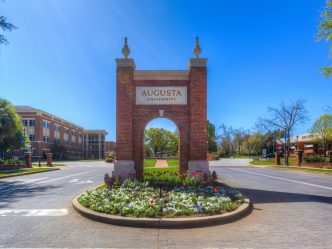The Augusta University Police Department is taking a massive leap forward with $2.7 million in technological upgrades, thanks to a 2023 grant from the Office of Community Oriented Policing Services in the U.S. Department of Justice.
AUPD’s radios and computers in patrol cars were upgraded as part of the grant, but Capt. Eric Smith said he’s most excited about the changes to AUPD’s dispatch center.
“The real bang for the buck comes in our video system throughout campus,” Smith said. “We’re going to start leveraging edge analytics in cameras. With a wall of videos in our dispatch center and all upgraded computers in there, it will become a real-time information center to aid our officers.”

By using cutting-edge technology, officers can analyze real-time data and respond more quickly.
Just like technology has improved in policing, AUPD’s response to campus security concerns has also consistently improved over time. Despite changes in strategy, Capt. Paul Sharpton said the core concern driving the updates has always remained the same: Do you feel safe on campus?
Sharpton said AUPD officers asked students what would make them feel more secure on JagSafe routes, which are patrolled 24/7 in high-volume areas. Students replied that seeing police would make them feel safer.
“Police were there, but it was nighttime,” Sharpton explained. “We were just blending in with the other traffic in parked cars.”
The solution was simple: turning on static bright blue lights on top of the patrol cruisers.
“Suddenly, we got feedback from students asking if we hired a bunch of people, because they saw the police everywhere,” Sharpton recalled. “So not only did this double in its efforts by making students safer by feeling our presence, but it also deterred criminals from the area.”
According to open records published every month by the AUPD on its Clery and Crime data page, more than 50% of all calls for service in 2023 on Augusta University’s campuses were for the hospital system. Of the crimes outside the hospital spaces, statistics show auto thefts and break-ins were the bigger issues.
Over the past three years, statistics show 12 cars have been stolen. Of the dozen thefts, eight vehicles had their keys left inside, and at least five of those were also left unlocked. Of 44 break-ins over the same time span, only eight people were certain they had locked their cars.
“To put these break-ins and theft statistics into perspective, AU has 5,820 vehicles permitted to park on campus every day,” Sharpton said. “That number doesn’t include the large number of patients, visitors and contractors that also visit our campuses every day, and thankfully, the vast majority of people do lock their cars.”
What makes a college campus safe?
Members of the Augusta University Police Department believe it takes a village to create a culture of safety and security. They’re proud of the results they’ve achieved through shared responsibility amongst officers, students, faculty and staff here in Augusta.
“One of the lessons we’ve learned over the past decade has been that when we talk about community trust and engagement, obviously AUPD is a huge part of that, but we also need the community to engage with us,” said Smith, the captain of professional standards. “We need the community to be our eyes and ears. One of the things we want our students to learn is how to have a relationship with your police department and be part of the solution.”

“Every officer within this department tries really hard on a one-by-one basis to build that trust with our community,” said AUPD Chief Jim Lyon. “That’s why we have a transparency page on our website – to answer how we police, what our use-of-force policies are. We want people to come straight to the source and engage in a conversation with us.”
From the Rape Aggression Defense System program to active shooter trainings, AUPD offers vital programs and resources for the entire AU community. Officers connect with students through coffee chats, social media and other means to stay accessible. By encouraging participation and open communication, the department hopes to empower everyone to contribute to a safer environment, making security a collective effort.
 Augusta University
Augusta University




